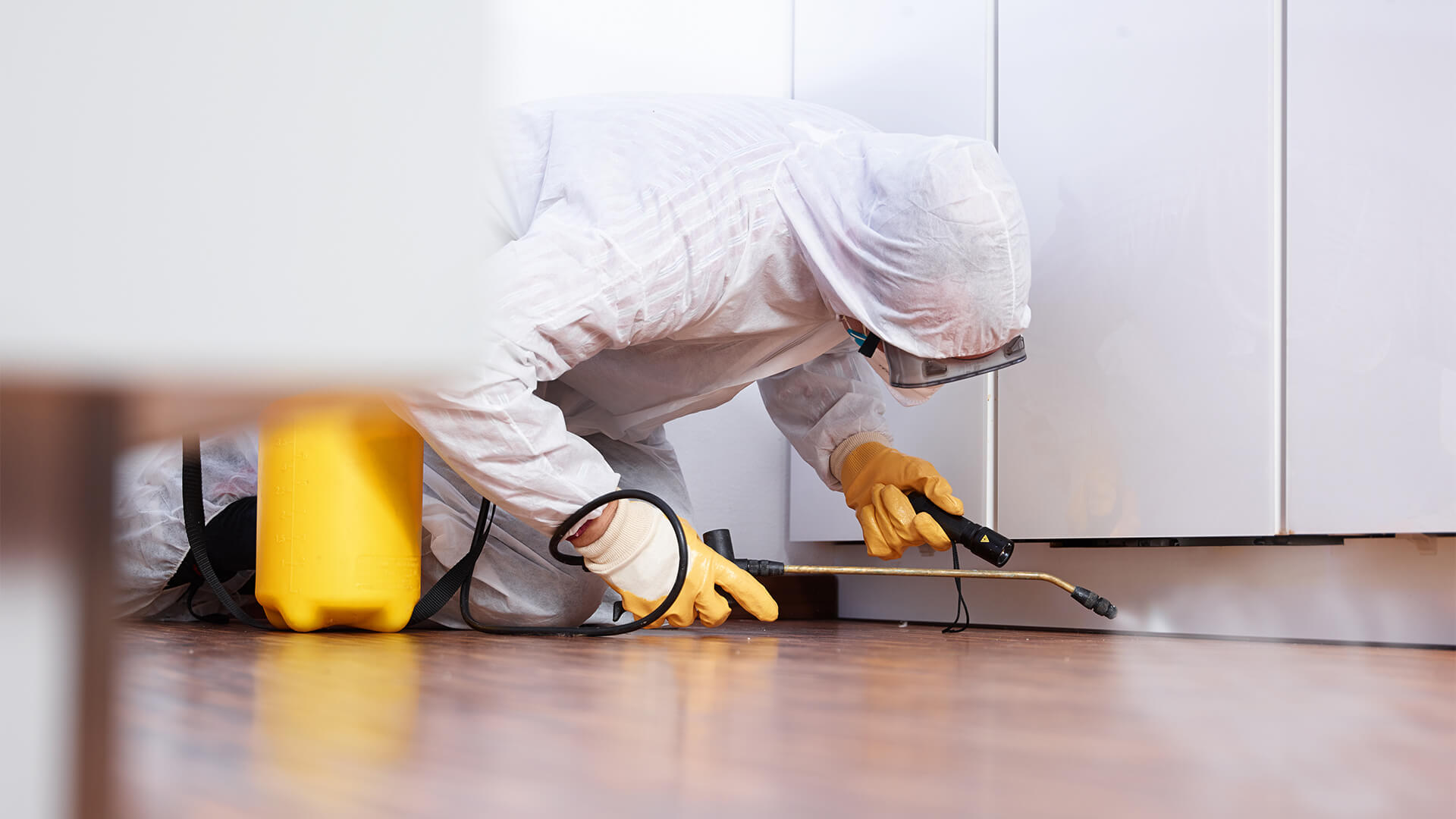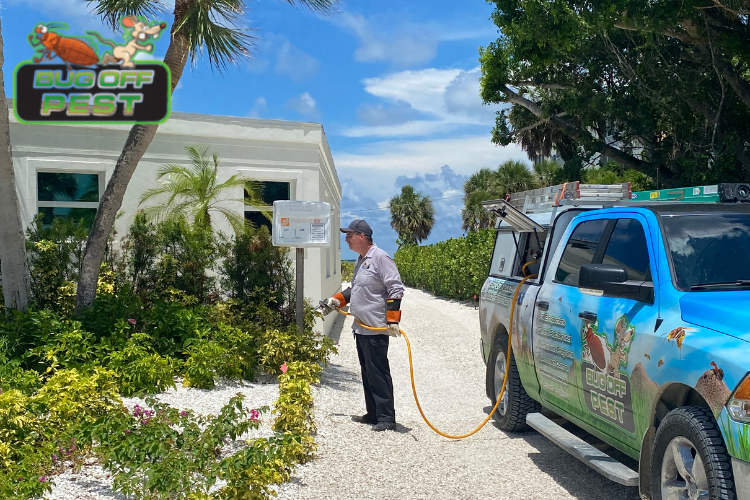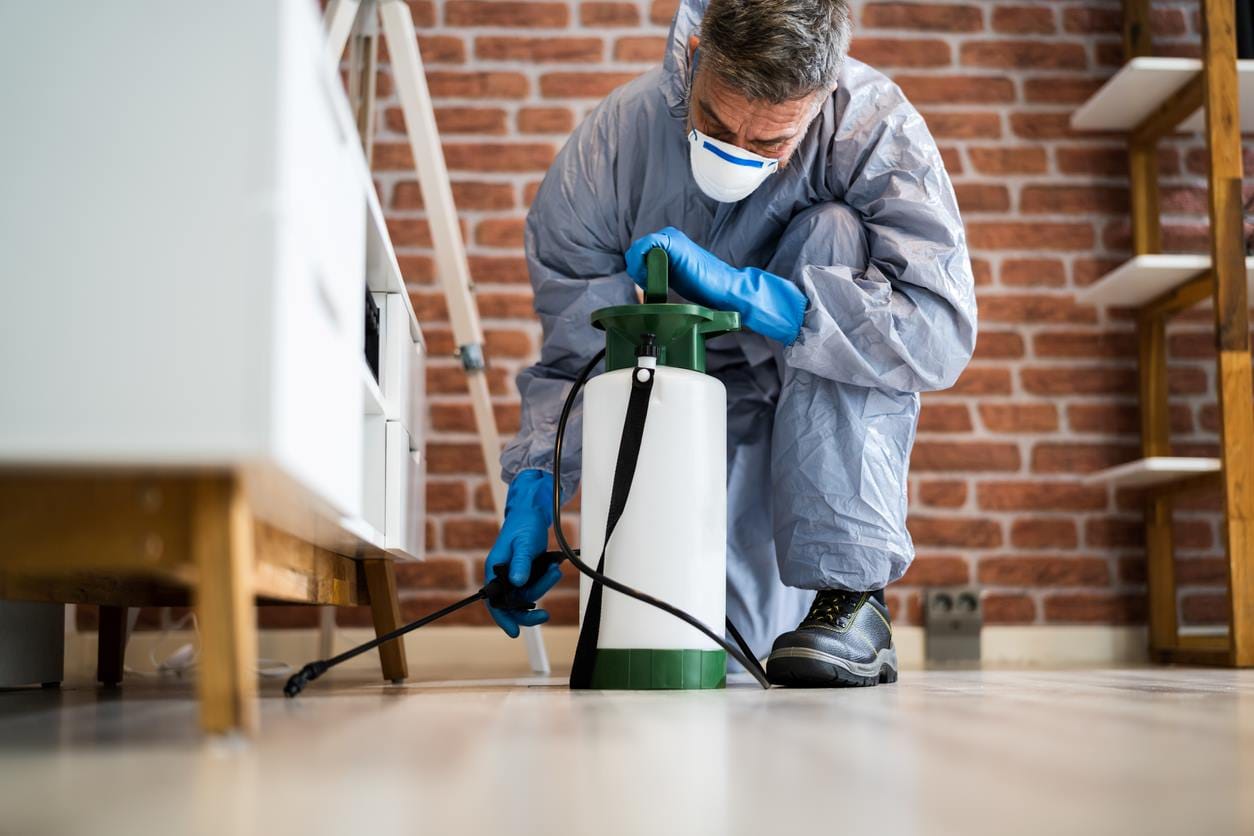Professional Rodent Control Port Charlotte to Stop Damage to Your House
Discover the Importance of Bug Control in Maintaining a Healthy And Balanced Atmosphere and Treatment Methods

The Role of Bugs in Ecosystems
Bugs, often watched only as problems, play a complex function in environments that is vital for preserving environmental balance. They add significantly to different eco-friendly processes, including pollination, nutrition cycling, and bug control. Several insect species, such as butterflies and bees, are vital pollinators for a large array of plants, which in turn supports biodiversity and food production.
Furthermore, parasites act as prey for numerous predators, creating an important link in food webs. This interdependence makes sure the survival of different types and aids manage populaces within ecological communities (Termite treatment Port Charlotte). Decomposer parasites, such as particular beetles and fungis, are crucial in damaging down organic matter, therefore enhancing soil and facilitating nutrient recycling.
Alternatively, while parasites can be valuable, their overpopulation or intrusion into non-native atmospheres might interrupt these ecological functions. This intricacy highlights the significance of understanding parasite characteristics, as reliable parasite administration strategies must take into consideration both their environmental functions and potential effect on human activities. Stabilizing pest existence while reducing harm is crucial for protecting the integrity of ecological communities and ensuring farming efficiency.
Health Dangers Connected With Parasites
The existence of parasites in different atmospheres extends past their ecological functions, as they also present significant health and wellness risks to people and pets. Many bugs, consisting of rodents, parasites, and pests, are service providers of diseases that can have severe health ramifications. Rodents are understood to send hantavirus and leptospirosis, both of which can lead to severe breathing and kidney concerns, respectively.
Insects such as mosquitoes and ticks are well known for spreading out vector-borne conditions like malaria, dengue fever, and Lyme illness. These health problems can cause high morbidity and mortality rates, especially in vulnerable populations. Furthermore, bugs like roaches and vermins can exacerbate allergies and asthma, adding to respiratory system troubles in individuals, especially those with pre-existing conditions.
Additionally, the existence of bugs can bring about emotional stress and discomfort, impacting overall well-being. Contamination of food and surface areas by parasite droppings and continues to be can lead to foodborne ailments, highlighting the importance of keeping hygienic problems. Understanding the wellness risks connected with pests is essential in identifying the requirement of reliable pest administration strategies to secure human and animal health.

Benefits of Reliable Insect Control
Effective parasite control is necessary for preserving a healthy and safe environment, as it continually alleviates the numerous threats connected with pest problems. One of the key benefits of reliable bug management is the decrease of health threats.
Furthermore, effective bug control safeguards residential property and frameworks from damage. Several insects, like termites and woodworker ants, can cause extensive structural damages that may call for expensive repair work. By proactively taking care of these services, home owners and infestations can safeguard their financial investments.
Another considerable benefit is the improvement of overall lifestyle. A pest-free setting adds to psychological well-being and decreases tension connected with problems. Effective parasite control fosters a safer atmosphere wildlife removal for children and pets, ensuring that homes continue to be refuges cost-free from disease-causing microorganisms and hazardous chemicals.
Typical Pest Control Strategies

In the world of bug management, numerous techniques are used to combat infestations successfully. These strategies can be generally categorized right into three major methods: social, mechanical, and chemical controls.
Cultural control involves customizing practices to minimize pest survival, reproduction, and establishment. This might include crop turning, proper cleanliness, and environment manipulation, which collectively create an environment less conducive to pest proliferation.
Mechanical control employs physical methods to eliminate insects (Termite treatment Port Charlotte). Methods such as catches, vacuum cleaners, and obstacles are frequently used to directly eliminate insects from an area. This method is particularly effective for managing rodents and insects without using hazardous chemicals
Chemical click this link control involves the application of pesticides to manage pests. These materials can be classified right into herbicides, insecticides, and fungicides, each targeting specific sorts of pests. It is crucial to make use of these chemicals carefully, adhering to safety standards and laws to lessen prospective harm to non-target varieties and the setting.
Each insect control technique has its benefits and restrictions, and commonly, an integrated approach incorporating several methods generates the best lead to preserving a pest-free setting.
Lasting Pest Monitoring Practices
Sustainable parasite administration practices include a variety of approaches developed to minimize environmental impact while successfully controlling bug populations. These methods prioritize using eco-friendly methods over chemical pesticides, consequently reducing the threat of harm to non-target types, consisting of helpful insects, wildlife, and humans.
Integrated Insect Management (IPM) is a keystone of sustainable methods, incorporating biological, cultural, mechanical, and chemical methods to manage pests. Biological control includes presenting natural predators or bloodsuckers to subdue pest populations. Cultural methods, such as plant turning and polyculture, disrupt pest life cycles and improve ecosystem durability.
Mechanical approaches, such as catches or barriers, can successfully protect against parasite access without chemical intervention. Additionally, preserving healthy and balanced communities with appropriate dirt administration, plant wellness, and biodiversity can normally minimize parasite concerns.
Education and learning and recognition are essential components, empowering individuals and communities to recognize insect risks early and execute precautionary procedures. Termite treatment Port Charlotte. By cultivating an all natural strategy that balances insect control with ecological why not try these out integrity, sustainable parasite monitoring techniques not only safeguard crops and structures yet likewise contribute to a healthier setting for future generations
Verdict

Comprehending the health threats connected with pests is vital in acknowledging the need of efficient pest administration strategies to secure human and animal wellness.
Effective parasite control is important for keeping a risk-free and healthy atmosphere, as it continually reduces the countless risks linked with pest invasions.Integrated Pest Administration (IPM) is a foundation of sustainable methods, incorporating biological, cultural, mechanical, and chemical methods to manage bugs. By recognizing the role of insects, identifying involved health and wellness risks, and utilizing diverse treatment methods, a lasting approach to pest management can be accomplished. Integrated Parasite Management (IPM) emphasizes an alternative method that minimizes harm to helpful microorganisms while effectively managing bug populaces.